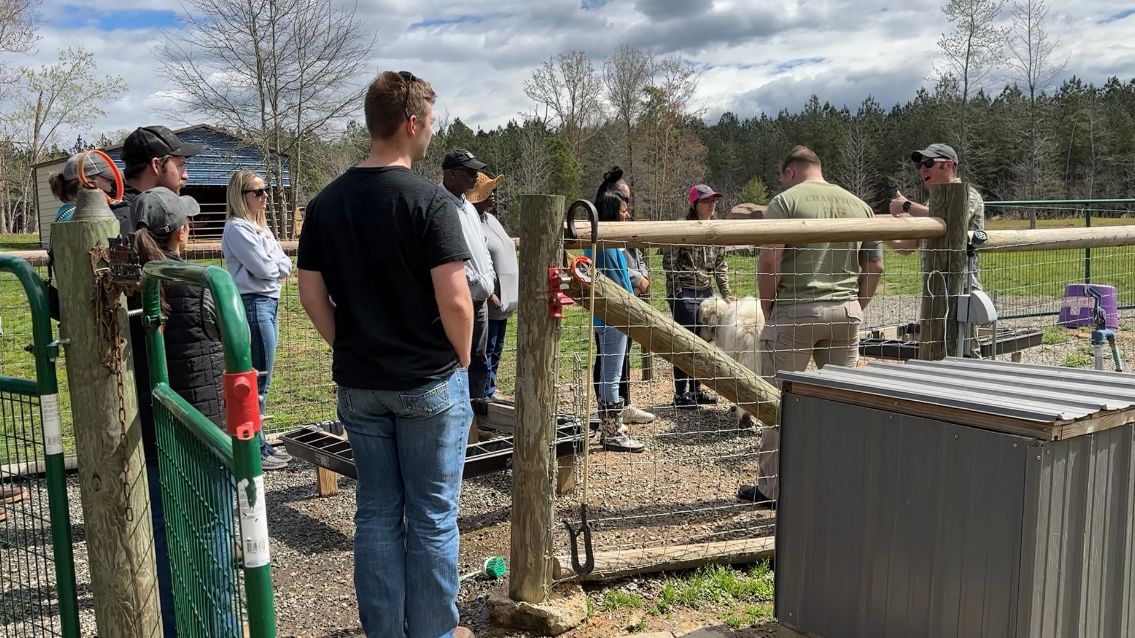CUMBERLAND COUNTY, N.C. — A new program in Cumberland County is designed to help active-duty service members transition into agriculture after they leave the military.
According to the U.S. Department of Agriculture, North Carolina is the nation’s third most diverse agricultural state. It’s also home to the largest military base in the country, but transitioning out of active duty can be one of the toughest parts of serving in the military.

“When you retire, you feel like you’re losing your community or you feel like you’re not sure how to transition,” Sarah Moffit, who retired April 1, said. “What I did there? How do I go out, do anything else? And farming or agriculture kind of opens that gamut of possibility and pursuit for purpose.”
Tim Shiflet made the transition before a program like Soldiers to Ag existed; partnering with the program by giving tours of his now-thriving farming operation is his way of paying it forward. On top of that, Shiflet said there’s something about agriculture that is therapeutic.
“What better of a resource and a way to heal than to see life grow and create it rather than take it away,” Shiflet said.
Cumberland County is now offering service members within 180 days of separating from the military the training necessary to become a farmer through a five-week course that exposes military members to as many different areas of agriculture as possible — hoping one will ignite a passion for them.

“When people are like, thank you for your service, you appreciate it. It makes you feel good about all that you've dedicated, but going into agriculture really transitions and fulfills that very, very well,” Moffit said.
The program includes farm tours and hands-on training in things like forestry, row crops, and livestock. Moffit sees this as a great way to ease her transition and also create jobs that continue to grow the No. 1 industry in the state.
“Tim and his operation just really reinforces that anything could be possible,” Moffit said. “It's not over. You're not done, so to speak.”
According to the Food and Agriculture Organization, the world must double current food production in 30 years to feed the growing population.
“Unless you inherit farming, it's a formidable obstacle to begin,” Shiflet said. “An ability to triumph with very little, resourcefulness, resiliency, those are all characteristics you need in starting agriculture too, so who better than veterans to take up that mantle?”
The current five-week course wraps up in early May, but classes for the next batch of soldiers-turned-farmers starts at the end of July.



